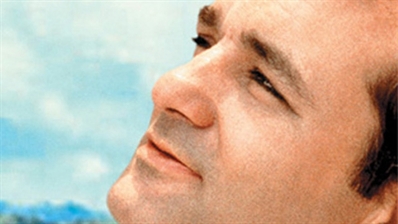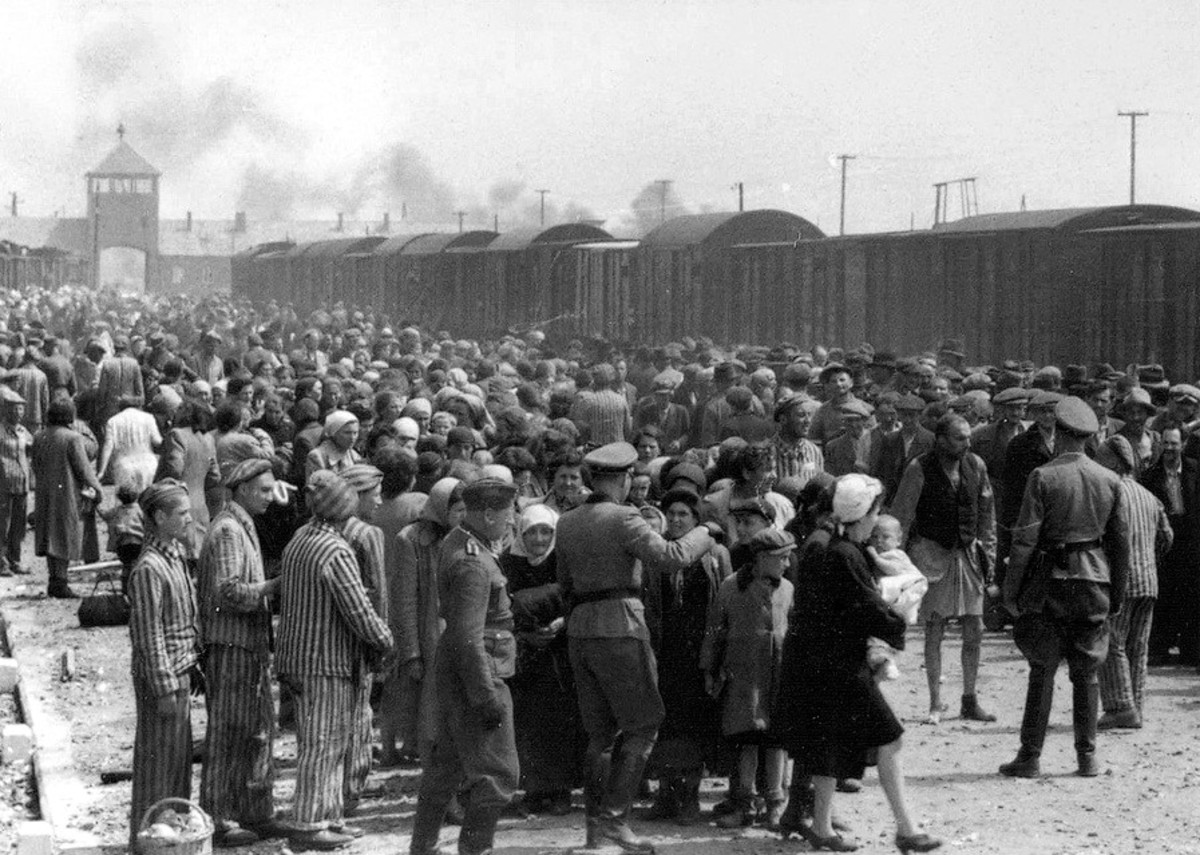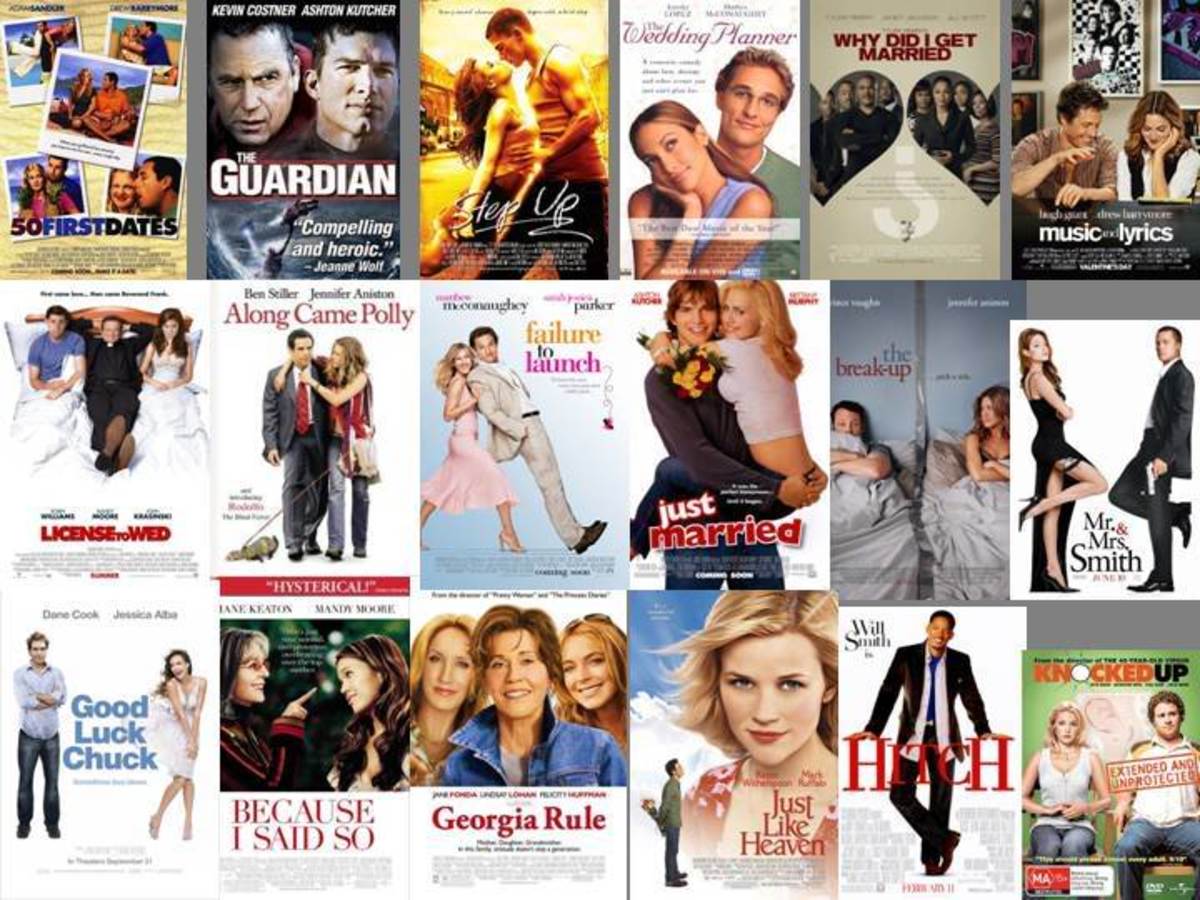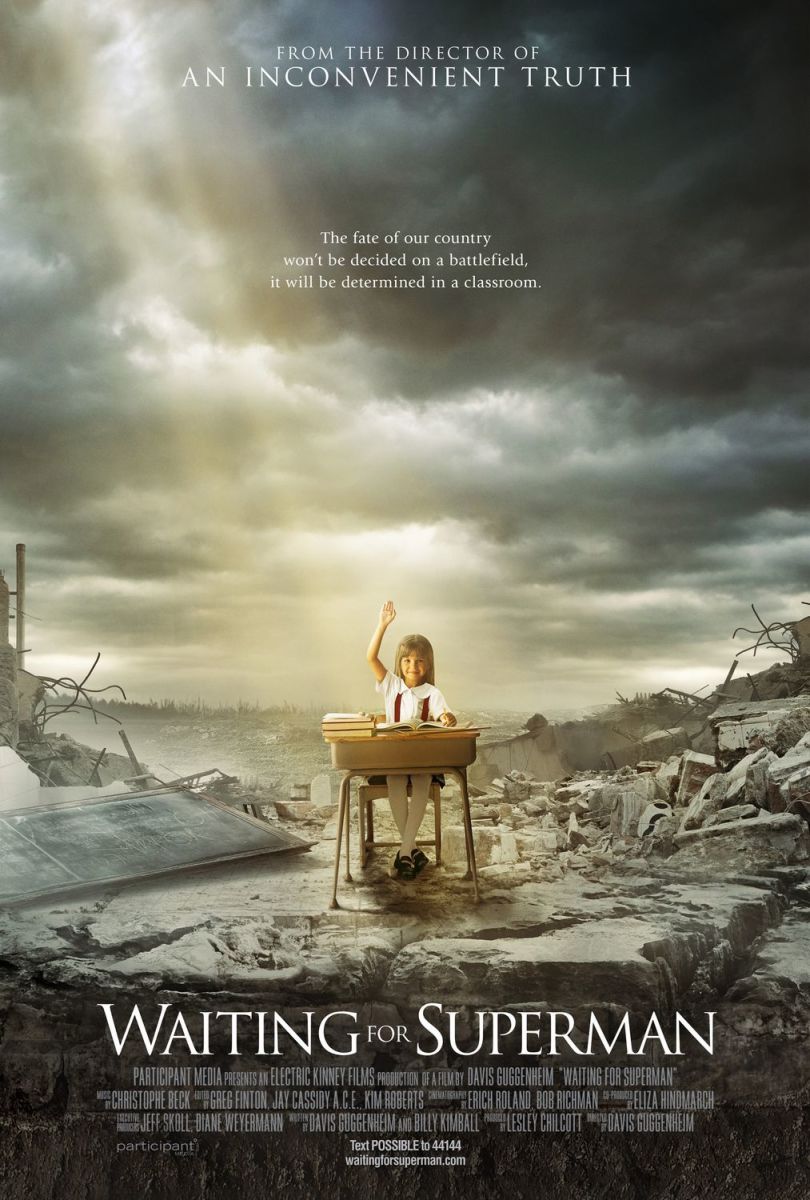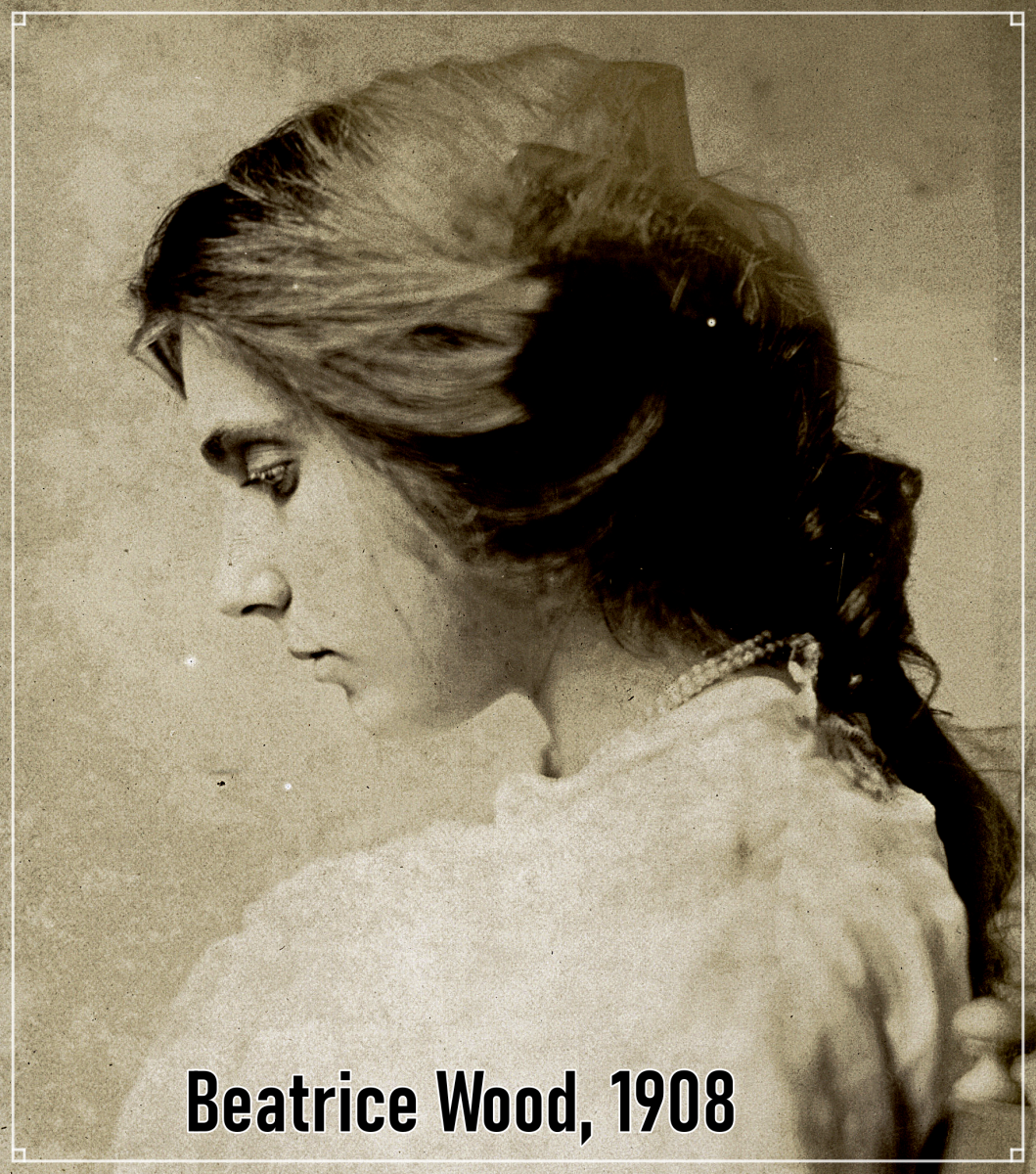The Razor's Edge (1984)
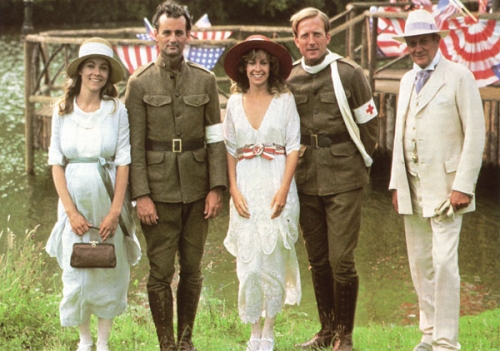
I'm not going to do a comparison of the 1946 Tyrone Power/Gene Tierney version of this film with the 1984 version staring Bill Murray and Theresa Russell (Sophie). I can only tell you that I've watched both, and each time I view the 1984 rendition I come away a weeping mess while the same does not happen when I watch the 1946 production. A friend of mine suggested that the characters in the 1946 version were too old -- in accordance with the novel. That may be true. Although I liked the actors from the 1946 version, I felt as if they were emotionally stifled.
Having viewed the 1984 version dozens of times, I simply wish to add an endorsement to this film that was panned by the critics.
The film, based on W. Somerset Maugham's novel is set at the turn of the century. The theme of the story is one man's quest to find "himself" after Brian Doyle-Murray (Piedmont) sacrifices his life to save those of Larry Darrell (Bill Murray and James Keach (Gray Maturin) while on ambulance duty in WWI Europe. This sacrifice is a life-altering experience for Darrell who previously had been a fun-loving, clownish figure. His pre-war plans were to marry Catherine Hicks (Isabel Bradley) and thereafter to work in Maturin's father's Wall Street business. But, with the death of Piedmont, Darrell is no longer at peace with himself. In an explanation from Darrell toward the end of the film, he conveys that he owed Piedmont a reason for his existence and to make as much of his life as possible.
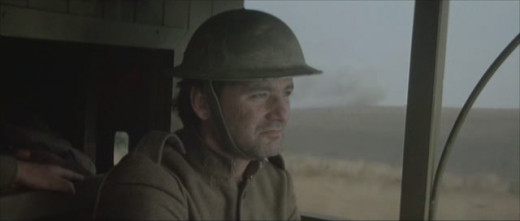
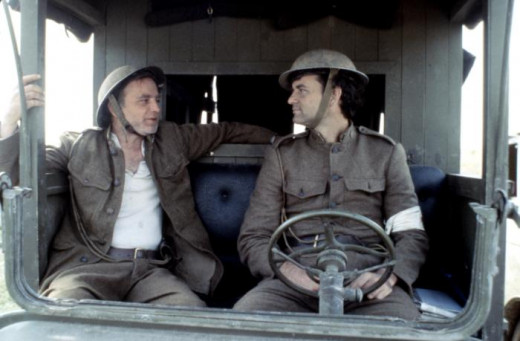
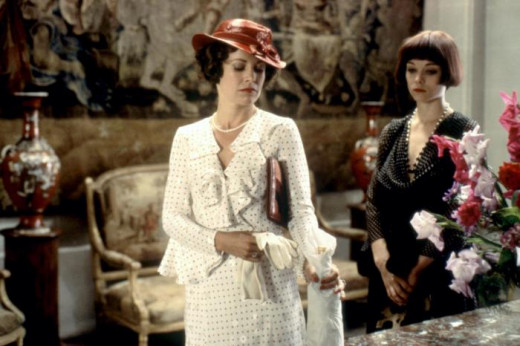
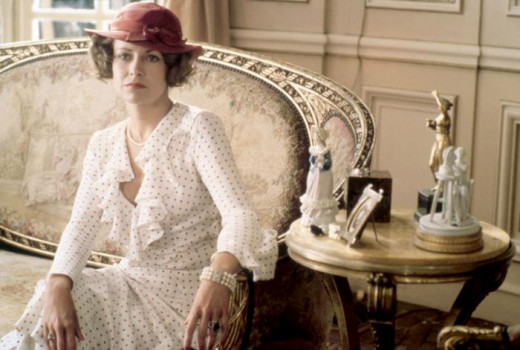
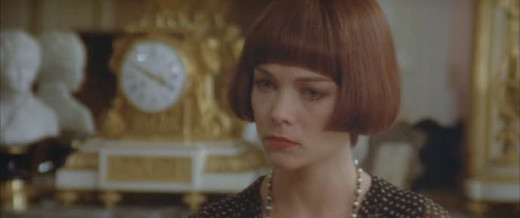
This new, more self-examining way of life that Darrell has stumbled upon when returning to Isabel doesn't make for the expected return that Isabel had envisioned. Darrell spends endless days idling and putting off the marriage. When Isabel finally confronts Darrell about his seeming turn of heart, he explains to her that he is no longer the same person he was when he proposed to her. The Piedmont experience had changed him irrevocably and he needed time to figure out "the meaning of life." Isabel doesn't receive this knowledge in anything approximating a self-sacrificing way. After more than a year elapses she travels to Paris, primarily to visit Darrell. Her uncle and aunt recognize her purpose but do not put up any obstacles. The reunion of Darrell with Isabel is both ecstatic and miserable. Isabel sees how Darrell has been living -- on low wages, and in a bug/rat infested apartment with a communal toilet. This is all too much for Isabel's sensibilities, and she joins her aunt on the next boat back to America.
We see Sophie catch the bouquet at Isabel's wedding (although Sophie has been wedded a number of years with Bob MacDonald (Joris Stuyck) and has a small baby. Very tragically, her husband and child are killed in an automobile accident. Sophie is inconsolable and begins a downward turn.
Darrell doesn't take Isabel's departure easily. He goes to visit Elliot Templeton (Denholm Elliot) for answers. Learning of Isabel's flight, Darrell breaks one of Templeton's antique chairs. Templeton responds, "That chair cost more than you make in a year." But Templeton is not gloating. He seems genuinely sorry for Darrell.
Darrell's next occupation is in the coal mines. Here, he happens to save the life of a rare, strange man named Mackenzie (Peter Vaughan) who is an alcoholic and, strangely, something of a philosopher. Mackenzie suggests that Darrell visit India to learn more than books can offer. And he does -- going with a guide to visit a monastery at the top of a mountain in Tibet. He lives here a while and seems to fit in nicely, although no revelations about life come his way. The Lama instructs Darrell to take his books and go to a desolate spot on another mountain peak, with which he complies. Having reached the assigned place. He sits and meditates but cannot shake off the intense cold of the wind. While reading one of his books, we see him set fire to one page after another -- for no other reason than to keep his body warm. This is a point of enlightenment for Darrell. After this he sees the limitations of book-learning and understands he must rejoin the world in order to propel his life forward.

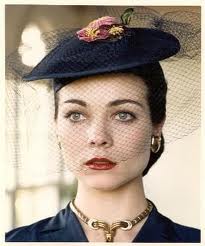
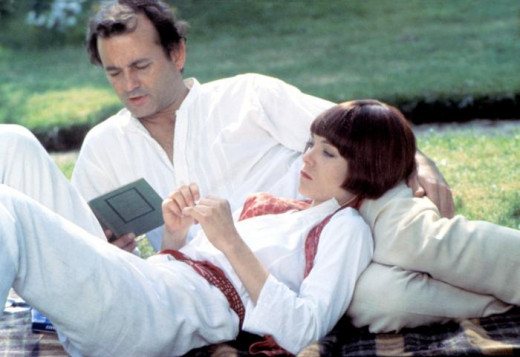
While working as a fish packer back in Paris, he stumbles upon Elliot Templeton who tells him to take a wash and come by the house sometime. In the time that has passed Gray Maturin has married Isabel and produced two daughters. Things have not been totally uphill for the couple. Faced with financial collapse, Maturin learns that his father shot himself. After this shocking news, he becomes dysfunctional.
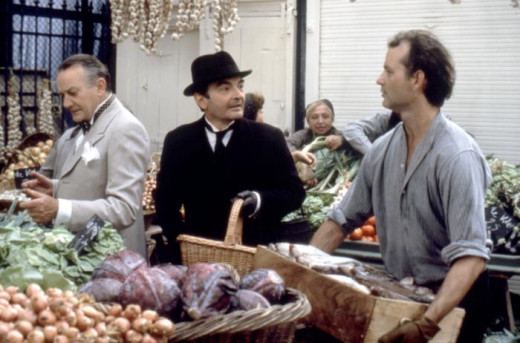
Eventually, Darrell visits Templeton's luxurious abode. Isabel is much the same but distraught over Maturin's condition. Darrell visits Maturin in his bed and begins to use a form of hypnosis to bring him out of his doldrums. His procedure works in a miraculous sort of way, and by that evening the three of them are visiting nightclubs.
Unbeknownst to all is that Sophie is working in one of the clubs as a drugged-out, alcoholic prostitute. After a few digs from Sophie, Maturin and Isabel are anxious to leave the café/bar. However Darrell makes nothing out of Sophie's obvious degradation. When Sophie's pimp comes by to ask what they will pay for Sophie, Darrell quells his friend's angry impulse, then pretends to pay the fee for "one hour" with Sophie. While Maturin and Isabel board their car (in a huff), we see Darrell and Sophie sneaking down the street. Darrell, jokingly says that they decided the cost of fresh linen would be cheaper at his own place. This is in a series of Bill Murray one liners scattered throughout the movie, which some people loved and others hated. I personally liked the bouncy freshness of Murray's portrayal and much of his ad lib humor. I think without these humorous insertions, the movie would have been relentlessly bleak. Critics of the Tyrone Power version found it to be relentlessly dark and stiff. This is not the case with the Murray version. For example, before Darrell leaves to serve as an ambulance driver in WWI (prior to America's committed involvement), Isabel approaches Darrell loafing in a swimming pool. She tells him she wants a serious talk with him (because he has done nothing since returning from the war duty, and in the interim has done absolutely nothing -- in particular nothing to advance his wedding with Isabel or starting a new Wall Street type job afforded him by Maturin's father. Murray says, "Okay, let's talk ... seal talk," then makes several attempts to slump up to the edge of the pool, not using his arms, and barking like a seal. Nothing of this display of humor impresses Isabel whatsoever.
Essentially kidnapping Sophie from the bar/club, he immediately begins his work on her -- first having her climb an innumerable number of stairs, then dancing her into a small shower where they both get soaked. Sophie isn't thrilled by any of this, but she's attracted to Darrell, and spends the night.
Darrell isn't present in the morning, so Sophie puts on her clothes and heads for the door -- just when Darrell arrives with paint cans and brushes. He tells Sophie that he would have given Sophie her freedom if this painting requirement hadn't cropped up. It's all an excuse to make Sophie sweat out the poisons she's been consuming. The following scenes with Darrell and Sophie are absolutely perfect. You feel the pain of Sophie at having lost not only her husband and baby but the attention of her old friends, Isabel and Maturin. And you feel just how much Sophie fills the void in Darrell's life.
As far as the plot development goes, this would be a good stopping point because to reveal more would totally spoil the picture.
I will simply say that "The Razor's Edge" is very dramatic, romantic, engaging, tragic, and unexpectedly humorous. If you already have preconceived, negative impressions about Bill Murray, you should take a pass. If you're willing to give Murray the benefit of the doubt then you may be able to see the silver lining in this much maligned motion picture.
The music swells with the heights and depths of human experience through the soundtrack provided by Jack Nitzche.
